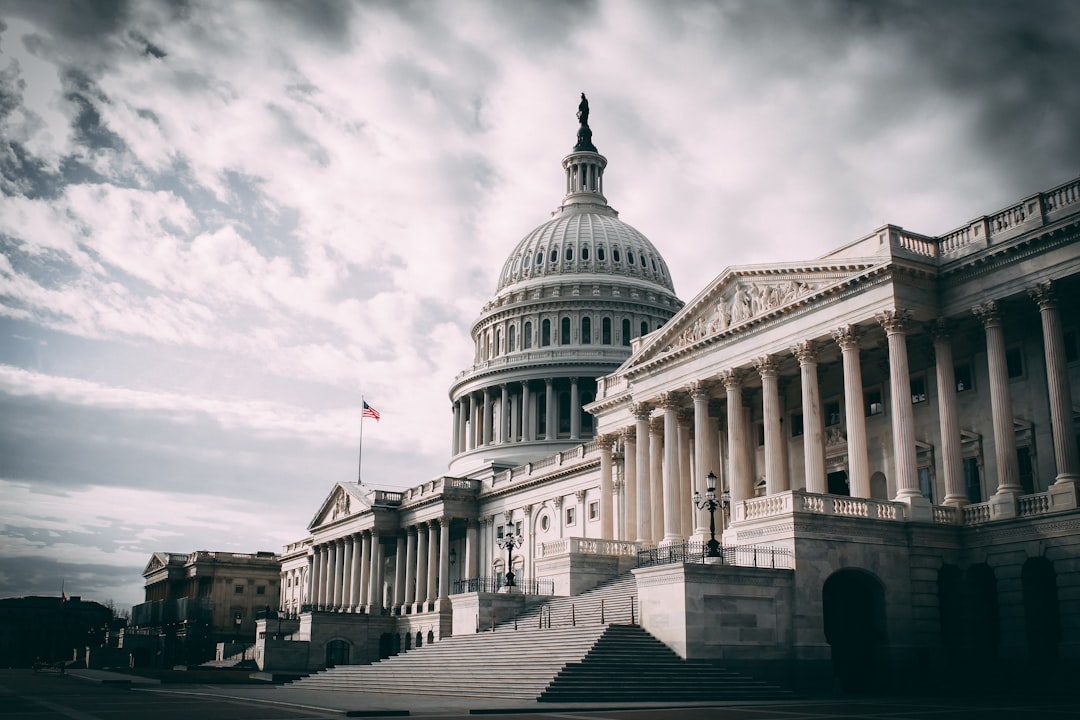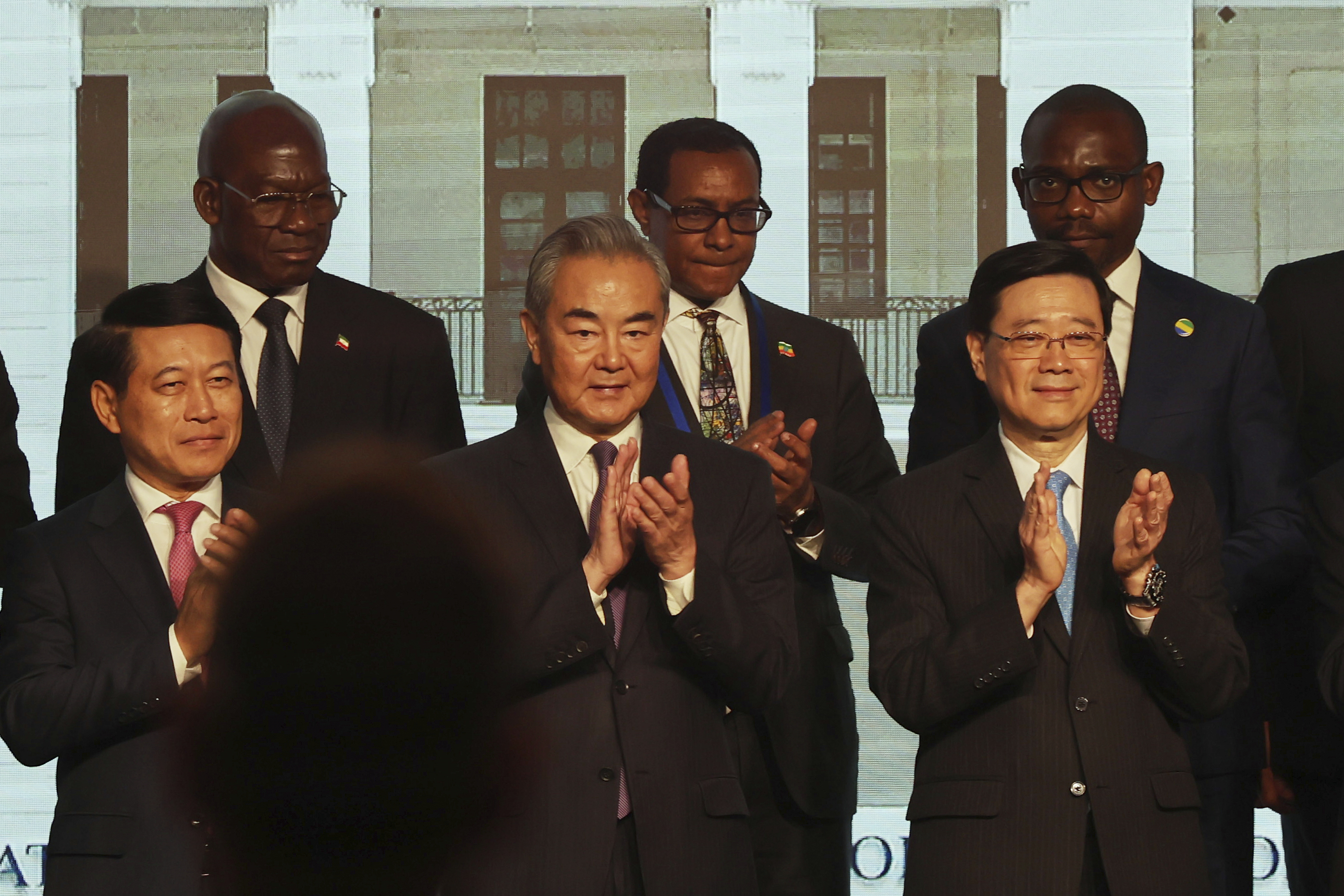Experts Matter. Find Yours.
Connect for media, speaking, professional opportunities & more.

Emil Bove’s appeals court nomination echoes earlier controversies, but with a key difference
This article is republished from The Conversation under a Creative Commons license. Read the original article here. President Donald Trump’s nomination of his former criminal defense attorney, Emil Bove, to be a judge on the United States Court of Appeals for the 3rd Circuit, has been mired in controversy. On June 24, 2025, Erez Reuveni, a former Department of Justice attorney who worked with Bove, released an extensive, 27-page whistleblower report. Reuveni claimed that Bove, as the Trump administration’s acting deputy attorney general, said “that it might become necessary to tell a court ‘fuck you’” and ignore court orders related to the administration’s immigration policies. Bove’s acting role ended on March 6 when he resumed his current position of principal associate deputy attorney general. When asked about this statement at his June 25 Senate confirmation hearing, Bove said, “I don’t recall.” And on July 15, 80 former federal and state judges signed a letter opposing Bove’s nomination. The letter argued that “Mr. Bove’s egregious record of mistreating law enforcement officers, abusing power, and disregarding the law itself disqualifies him for this position.” A day later, more than 900 former Department of Justice attorneys submitted their own letter opposing Bove’s confirmation. The attorneys argued that “Few actions could undermine the rule of law more than a senior executive branch official flouting another branch’s authority. But that is exactly what Mr. Bove allegedly did through his involvement in DOJ’s defiance of court orders.” On July 17, Democrats walked out of the Senate Judiciary Committee vote, in protest of the refusal by Chairman Chuck Grassley, a Republican from Iowa, to allow further investigation and debate on the nomination. Republicans on the committee then unanimously voted to move the nomination forward for a full Senate vote. As a scholar of the courts, I know that most federal court appointments are not as controversial as Bove’s nomination. But highly contentious nominations do arise from time to time. Here’s how three controversial nominations turned out – and how Bove’s nomination is different in a crucial way. Robert Bork Bork is the only federal court nominee whose name became a verb. “Borking” is “to attack or defeat (a nominee or candidate for public office) unfairly through an organized campaign of harsh public criticism or vilification,” according to Merriam-Webster. This refers to Republican President Ronald Reagan’s 1987 appointment of Bork to the Supreme Court. Reagan called Bork “one of the finest judges in America’s history.” Democrats viewed Bork, a federal appeals court judge, as an ideologically extreme conservative, with their opposition based largely on his extensive scholarly work and opinions on the U.S. Court of Appeals for the District of Columbia Circuit. In opposing the Bork nomination, Sen. Ted Kennedy of Massachusetts took the Senate floor and gave a fiery speech: “Robert Bork’s America is a land in which women would be forced into back-alley abortions, blacks would sit at segregated lunch counters, rogue police could break down citizens’ doors in midnight raids, schoolchildren could not be taught about evolution, writers and artists could be censored at the whim of government, and the doors of the federal courts would be shut on the fingers of millions of citizens for whom the judiciary is often the only protector of the individual rights that are the heart of our democracy.” Ultimately, Bork’s nomination failed by a 58-42 vote in the Senate, with 52 Democrats and six Republicans rejecting the nomination. Ronnie White In 1997, Democratic President Bill Clinton nominated White to the United States District Court for the Eastern District of Missouri. White was the first Black judge on the Missouri Supreme Court. Republican Sen. John Ashcroft, from White’s home state of Missouri, led the fight against the nomination. Ashcroft alleged that White’s confirmation would “push the law in a pro-criminal direction.” Ashcroft based this claim on White’s comparatively liberal record in death penalty cases as a judge on the Missouri Supreme Court. However, there was limited evidence to support this assertion. This led some to believe that Ashcroft’s attack on the nomination was motivated by stereotypes that African Americans, like White, are soft on crime. Even Clinton implied that race may be a factor in the attacks on White: “By voting down the first African-American judge to serve on the Missouri Supreme Court, the Republicans have deprived both the judiciary and the people of Missouri of an excellent, fair, and impartial Federal judge.” White’s nomination was defeated in the Senate by a 54-45 party-line vote. In 2014, White was renominated to the same judgeship by President Barack Obama and confirmed by largely party-line 53-44 vote, garnering the support of a single Republican, Susan Collins of Maine. Miguel Estrada Republican President George W. Bush nominated Estrada to the Court of Appeals for the District of Columbia Circuit in 2001. Estrada, who had earned a unanimous “well-qualified” rating from the American Bar Association, faced deep opposition from Senate Democrats, who believed he was a conservative ideologue. They also worried that, if confirmed, he would later be appointed to the Supreme Court. However, unlike Bork – who had an extensive paper trail as an academic and judge – Estrada’s written record was very thin. Democrats sought to use his confirmation hearing to probe his beliefs. But they didn’t get very far, as Estrada dodged many of the senators’ questions, including ones about Supreme Court cases he disagreed with and judges he admired. Democrats were particularly troubled by allegations that Estrada, when he was screening candidates for Justice Anthony Kennedy, disqualified applicants for Supreme Court clerkships based on their ideology. According to one attorney: “Miguel told me his job was to prevent liberal clerks from being hired. He told me he was screening out liberals because a liberal clerk had influenced Justice Kennedy to side with the majority and write a pro-gay-rights decision in a case known as Romer v. Evans, which struck down a Colorado statute that discriminated against gays and lesbians.” When asked about this at his confirmation hearing, Estrada initially denied it but later backpedaled. Estrada said, “There is a set of circumstances in which I would consider ideology if I think that the person has some extreme view that he would not be willing to set aside in service to Justice Kennedy.” Unlike the Bork nomination, Democrats didn’t have the numbers to vote Estrada’s nomination down. Instead, they successfully filibustered the nomination, knowing that Republicans couldn’t muster the required 60 votes to end the filibuster. This marked the first time in Senate history that a court of appeals nomination was filibustered. Estrada would never serve as a judge. Bove stands out As the examples of Bork, Estrada and White make clear, contentious nominations to the federal courts often involve ideological concerns. This is also true for Bove, who is opposed in part because of the perception that he is a conservative ideologue. But the main concerns about Bove are related to a belief that he is a Trump loyalist who shows little respect for the rule of law or the judicial branch. This makes Bove stand out among contentious federal court nominations.

Poll finds bipartisan agreement on a key issue: Regulating AI
This article is republished from The Conversation under a Creative Commons license. Read the original article here. In the run-up to the vote in the U.S. Senate on President Donald Trump’s spending and tax bill, Republicans scrambled to revise the bill to win support of wavering GOP senators. A provision included in the original bill was a 10-year moratorium on any state law that sought to regulate artificial intelligence. The provision denied access to US$500 million in federal funding for broadband internet and AI infrastructure projects for any state that passed any such law. The inclusion of the AI regulation moratorium was widely viewed as a win for AI firms that had expressed fears that states passing regulations on AI would hamper the development of the technology. However, many federal and state officials from both parties, including state attorneys general, state legislators and 17 Republican governors, publicly opposed the measure. In the last hours before the passage of the bill, the Senate struck down the provision by a resounding 99-1 vote. In an era defined by partisan divides on issues such as immigration, health care, social welfare, gender equality, race relations and gun control, why are so many Republican and Democratic political leaders on the same page on the issue of AI regulation? Whatever motivated lawmakers to permit AI regulation, our recent poll shows that they are aligned with the majority of Americans who view AI with trepidation, skepticism and fear, and who want the emerging technology regulated. Bipartisan sentiments We are political scientists who use polls to study partisan polarization in the United States, as well as the areas of agreement that bridge the divide that has come to define U.S. politics. In April 2025, we fielded a nationally representative poll that sought to capture what Americans think about AI, including what they think AI will mean for the economy and society going forward. The public is generally pessimistic. We found that 65% of Americans said they believe AI will increase the spread of false information. Fifty-six percent of Americans worry AI will threaten the future of humanity. Fewer than 3 in 10 Americans told us AI will make them more productive (29%), make people less lonely (21%) or improve the economy (22%). While Americans tend to be deeply divided along partisan lines on most issues, the apprehension regarding AI’s impact on the future appears to be relatively consistent across Republicans and Democrats. For example, only 19% of Republicans and 22% of Democrats said they believe that artificial intelligence will make people less lonely. Respondents across the parties are in lockstep when it comes to their views on whether AI will make them personally more productive, with only 29% − both Republicans and Democrats − agreeing. And 60% of Democrats and 53% Republicans said they believe AI will threaten the future of humanity. On the question of whether artificial intelligence should be strictly regulated by the government, we found that close to 6 in 10 Americans (58%) agree with this sentiment. Given the partisan differences in support for governmental regulation of business, we expected to find evidence of a partisan divide on this question. However, our data finds that Democrats and Republicans are of one mind on AI regulation, with majorities of both Democrats (66%) and Republicans (54%) supporting strict AI regulation. When we take into account demographic and political characteristics such as race, educational attainment, gender identity, income, ideology and age, we again find that partisan identity has no significant impact on opinion regarding the regulation of AI. State of anxiety In the years ahead, the debate over AI and the government’s role in regulating it is likely to intensify, on both the state and federal levels. As each day seems to bring new advances in AI’s capability and reach, the future is shaping up to be one in which human beings coexist – and hopefully flourish – alongside AI. This new reality has made the American public, both Democrats and Republicans, justifiably nervous, and our polling captures this widespread trepidation. Lawmakers and technology leaders alike could address this anxiety by better communicating the pitfalls and potential of AI, and take seriously the concerns of the public. After all, the public is not alone in its trepidation. Many experts in the field also have substantial worries about the future of AI. One of the fundamental political questions moving forward, then, will be to what degree regulators put guardrails on this emerging and transformative technology in order to protect Americans from AI’s negative consequences. Adam Eichen is a doctoral candidate in political science at UMass Amherst. Alexander Theodoridis is associate professor of political science and co-director of the UMass Amherst Poll at UMass Amherst. Sara M. Kirshbaum is a postdoctoral fellow and lecturer of political science at UMass Amherst. Tatishe Nteta is provost professor of political science and director of the UMass Amherst Poll at UMass Amherst.

James Sample Shares Legal Expertise as ABC News Contributor
Hofstra Law Professor James Sample recently added ABC News Contributor to his title of professional accomplishments. In the past year, the media has consistently relied on Professor Sample for his engaging and in-depth analysis on various legal topics. He made his debut as an ABC News Contributor by discussing several major Supreme Court rulings, including limiting judges’ power to block the Trump Administration’s policies on birthright citizenship procedures.

Sample Weighs in on SCOTUS Ruling on Gender-Affirming Care for Trans Youth
Hofstra Law Professor James Sample appeared on ABC News to give a legal analysis on a new Supreme Court ruling that involves gender-affirming care for transgender children.

10th Anniversary of the Supreme Court Legalizing Gay Marriage
The 10th anniversary of the U.S. Supreme Court’s landmark decision in Obergefell v. Hodges marks a decade since same-sex marriage became legal nationwide—a pivotal moment in the advancement of LGBTQ+ rights and civil liberties. This anniversary is newsworthy not only because of the social and legal progress it symbolizes but also due to ongoing conversations around equality, representation, and protection under the law. As the political landscape shifts and new challenges emerge, revisiting the legacy of this decision offers an opportunity to reflect on progress, examine setbacks, and spotlight the voices shaping the next chapter in LGBTQ+ advocacy. Key story angles that may interest a broad audience include: Personal stories from couples and families: Exploring how the decision transformed lives and created new definitions of family, love, and legal recognition. The legal legacy of Obergefell v. Hodges: Analyzing the impact on subsequent LGBTQ+ rights cases and how the precedent continues to be tested in courts. Backlash and resistance: Investigating the rise of anti-LGBTQ+ legislation and rhetoric in the decade following the ruling. Intersectionality within the LGBTQ+ rights movement: Highlighting the experiences of LGBTQ+ people of color, transgender individuals, and rural communities. The global ripple effect: Examining how the U.S. ruling influenced marriage equality movements in other countries. The future of LGBTQ+ rights: Discussing what comes next in the fight for inclusive healthcare, anti-discrimination laws, and gender identity recognition. Connect with our experts about the 10th Anniversary of the Supreme Court Legalizing Gay Marriage: Check out our experts here : www.expertfile.com

Supreme Court Takes Action on Transgender Law
On June 18, 2025, the Supreme Court ruled 6-3 that Tennessee could ban gender-affirming care for transgender minors. This decision is expected to not only affect those in Tennessee but those across America. This is not the first time the Supreme Court has upheld anti-transgender laws. President Trump requested that transgender individuals be removed from the military, which the Supreme Court granted on May 6, 2025. This ruling has gotten mixed reactions to those rejoicing and others enraged. Bill Lee, Tennessee governor, reminds others that, "Protecting children is a fundamental responsibility that we take seriously...this [bipartisan legislation] lawfully safeguards young people from irreversible, life-altering medical decisions." Time will tell how this decision made by the Supreme Court will affect other similar cases that will appear before them. Dr. Mark Caleb Smith is the Director of the Center for Political Studies at Cedarville University. Mark is available to speak with the media regarding the Supreme Court and their decision. Simply click on his icon or email mweinstein@cedarville.edu to arrange an interview.

Trump's deployment of National Guard troops in L.A. sparks legal questions
Professor of Law James Sample discussed the new travel ban enacted by the Trump Administration and its legality, and the use of National Guard troops in Los Angeles with MSNBC.

Julian Ku Examines China’s Role in New International Mediation Agreement
Hofstra Law Professor Julian Ku provided legal insights to Newsweek on the Convention on the Establishment of the International Organization for Mediation agreement that was signed by China and 32 other countries. The organization stands as the first of its kind, dedicated solely to facilitating mediation between nations.

James Sample Shares Legal Analysis on President Trump’s Travel Ban
Hofstra Law Professor James Sample shared his legal analysis on President Donald Trump’s new travel ban proclamation in an interview with ABC News. The proclamation bans 12 countries, citing national security concerns as the reason. In the news segment, Professor Sample said he expects the ban to be challenged in court. He also provided similar commentary for KYW Newsradio.

Video Insights: What Investors Need to Know About Shifting Tariffs
Unprecedented uncertainty brought on by quickly evolving tariff policies is creating challenges and additional considerations for investors and other capital providers. In this video, J.S. Held experts Brian Gleason, John Peiserich, James E. Malackowski, and Tom Burns – experts in turnaround, supply chain, intellectual property, and political risk – pose twelve questions to private equity sponsors and their portfolio companies to explore amid the continued tariff uncertainty. Restructuring and operations expert Brian Gleason has managed or participated in more than 300 turnaround engagements over the past 29 years and applies the principles utilized in J.S. Held's work advising companies in crisis. In the video, Brian addresses three essential questions that investors should consider with their portfolio companies during this period of unprecedented tariff-policy-induced uncertainty: 1) How have tariffs impacted business forecasting and investor confidence? 2) What are the key actions portfolio company management teams should take during tariff-induced uncertainty? 3) What leadership strategies are recommended for navigating the economic stress caused or complicated by tariffs? Business intelligence expert Tom Burns has extensive experience leading intelligence collection assignments for financial institutions, law firms, and blue-chip multinationals around the world. Tom explores the additional pre-acquisition diligence essential amid tariff uncertainty in the video. He addresses three questions, including: 4) How have tariffs changed the due diligence process in acquisitions? 5) What is transshipment, and why is it a concern for investors and their portfolio companies? 6) What steps should investors take to manage tariff-related risks in acquisitions? Capital projects, environmental risk, and compliance expert John Peiserich has over 30 years of experience advising heavy industry and law firms throughout the country with a focus on Oil & Gas, Energy, and Public Utilities. In the video, John reflects upon: 7) Why is it important for investors to assess the owner-operator's understanding of supply chain risks? 8) How have tariffs introduced new challenges for large-scale projects? 9) What is the potential impact of supply chain and tariff-related delays on investment outcomes? James E. Malackowski has a unique perspective on intellectual property litigation risk, strategic management, and monetization, which benefits from his prior work at a leading private equity firm. In the video, he advises investors and their portfolio companies to consider: 10) How do tariffs influence decisions around manufacturing relocation and intellectual property? 11) What IP-related risks should companies consider when relocating manufacturing operations? 12) What steps should investors take to ensure IP is properly managed in response to tariffs? The J.S. Held Tariffs and Trade Series is a collection of intelligence, insights, and action plans that inform strategic business decision-making and foster resilience in an increasingly volatile global market. To view more of our Tariffs and Trade Series expert analysis and commentary, visit: Looking to know more or connect with John Peiserich and James E. Malackowski? Simply click on either expert's icon now to arrange an interview today. If you are looking to connect with Brian Gleason or Tom Burns - contact : Kristi L. Stathis, J.S. Held +1 786 833 4864 Kristi.Stathis@JSHeld.com





